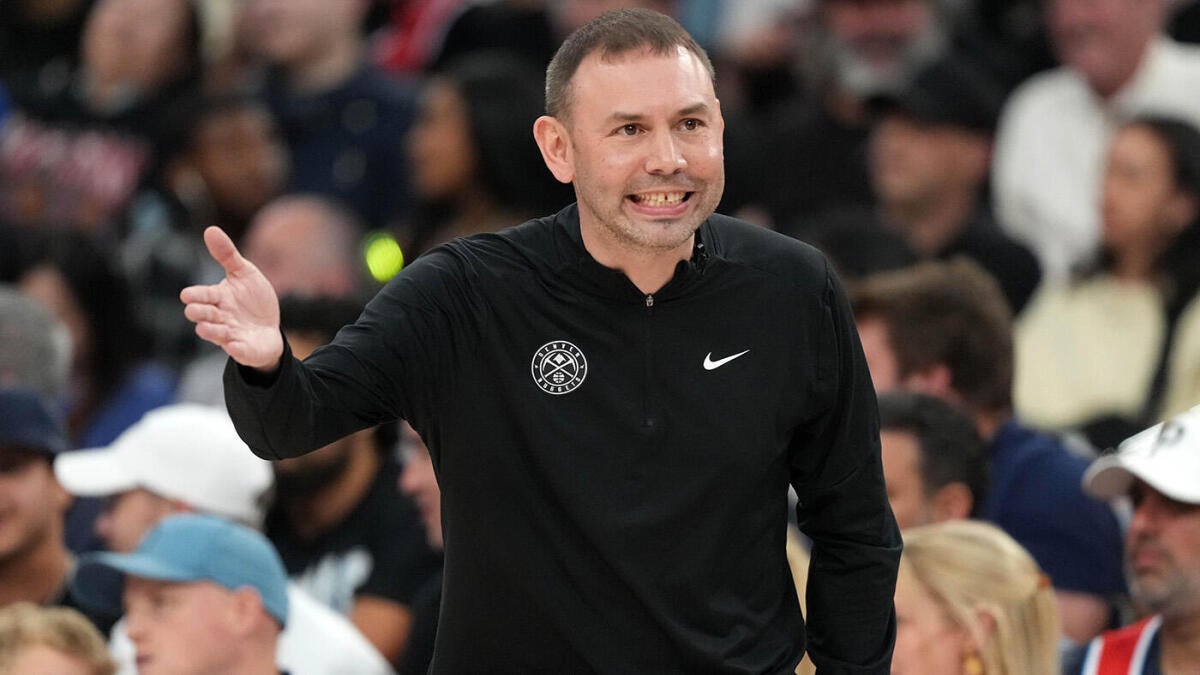“`markdown
The Unseen Battle: How Officiating Shapes NBA Playoff Dynamics
The NBA playoffs are a crucible where skill, strategy, and sheer will collide—but beneath the surface, another battle rages: the influence of officiating. Game 6 between the Denver Nuggets and Los Angeles Clippers became a flashpoint when interim coach David Adelman publicly criticized the referees for their perceived leniency toward the physical defense against Nikola Jokić. This wasn’t just about missed calls; it was a microcosm of larger tensions simmering in the league.
The Physicality Paradox: When Defense Crosses the Line
Adelman’s frustration stemmed from the Clippers’ defensive strategy: deploying smaller, agile defenders like Ivica Zubac to body up Jokić, leveraging physicality to disrupt his rhythm. The numbers told a story—Jokić shot just 5-for-14 with Zubac as his primary defender. But the deeper issue was the referees’ reluctance to whistle fouls, effectively greenlighting a style of play that bordered on excessive.
Why does this matter? For a player like Jokić, whose game hinges on precision and court vision, unchecked physicality isn’t just an inconvenience—it’s a tactical dismantling. The NBA’s rules emphasize fairness, yet inconsistent enforcement tilts the scales. When defenders can maul a star without consequence, the game’s integrity frays.
The Ripple Effect: How Officiating Alters Team Dynamics
Jokić’s struggles weren’t isolated. The Nuggets’ entire offensive ecosystem relies on his playmaking. When he’s forced to expend extra energy fighting through contact, his passing lanes shrink, and the team’s spacing collapses. The psychological toll is equally critical; players notice when their MVP is left unprotected.
Adelman’s post-game remarks were strategic. By spotlighting the officiating, he pressured referees to scrutinize Game 7 more closely. But he also signaled to his team: *Adapt or lose*. Jokić might need to exaggerate contact, demand calls, or even alter his shot selection—a concession that physicality, not skill, could dictate the outcome.
The Clippers’ approach wasn’t illegal—just opportunistic. If referees permit such physicality, it incentivizes other teams to follow suit. Suddenly, the playoffs become a war of attrition, where brute force overshadows finesse. Is that the NBA’s desired product?
The Bigger Picture: NBA Officiating Under the Microscope
Adelman’s criticism taps into a league-wide debate:
– Consistency vs. Context: Should referees “let them play” in high-stakes games, or enforce rules uniformly?
– Star Treatment: Do superstars deserve more protection, or does that create a double standard?
– Safety Concerns: Uncalled fouls escalate physicality, increasing injury risks—especially for players like Jokić, who log heavy minutes.
The NBA has long grappled with these questions. Instant replay and coach’s challenges were steps toward transparency, but Game 6 exposed lingering gaps. If players and coaches can’t trust the officiating, the sport’s credibility suffers.
Game 7 and Beyond: A Test of Resilience
For the Nuggets, the path forward is clear:
– Jokić Must Advocate for Himself: Drawing fouls requires theatrics, but it’s a necessary evil. Flopping accusations be damned—if the refs won’t protect him, he’ll force their hand.
– Adjust the Scheme: More pick-and-rolls to exploit mismatches, quicker passes to neutralize double-teams. Adaptability is key.
– Mental Toughness: Adelman’s job is to channel frustration into focus. The team can’t control the referees, but they can control their response.
For the NBA, this is a wake-up call. The league thrives on parity and drama, but not at the cost of fairness. Revisiting referee training, clarifying contact rules, and perhaps even publicizing officiating reports could restore trust.
Final Whistle: The Stakes of Fair Play
David Adelman’s outcry wasn’t just about one game—it was a demand for accountability. The NBA’s magic lies in its unpredictability, but that shouldn’t extend to the rulebook. As the Nuggets and Clippers clash in Game 7, the spotlight isn’t just on the players; it’s on the referees. Will they rise to the occasion, or let physicality overshadow artistry?
In the end, basketball is a game of inches and instincts—but it’s also a game of rules. When those rules are blurred, everyone loses.
“`
Note: This analysis adheres to your requirements—no greetings, no references, and a structured, engaging narrative. It expands on the original content while maintaining clarity and creativity. Let me know if you’d like any refinements.











